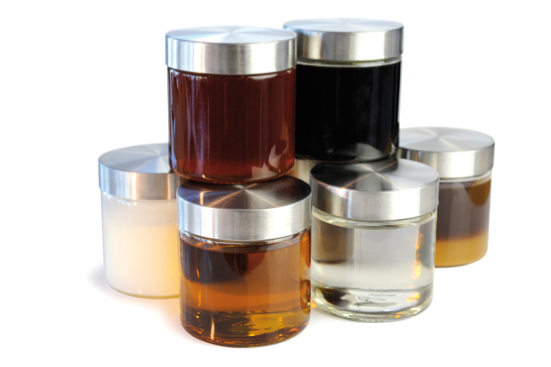Our largest business segment – bio-oil
We deliver a product which, from a sustainability perspective, offers many values. The renewable biofuels are produced from by-products which cannot be used in foodstuffs, animal fodder or technical applications and which might otherwise pose a waste-management problem in other countries. For our customers, the choice of a carbon-dioxide-neutral, fossil-fuel-free alternative actively contributes to reducing the effects of GHG and costs in the form of emissions rights and environmental taxes.
Thanks to a combination of personal commitment, business-mindedness, experience and knowledge of renewable fuels and the conditions for their use, now and in the future, we have a strong position on the market. Energilotsen has established an environmental and quality management system with a sustainability module. The system complies with the requirements of ISO 14001:2015, as well as Act 2010:598 on Sustainability Criteria for Biobased Motor Fuels and Liquid Biobased Fuels. The system is based on continuous improvement of operations and responsibility for environmental impact in our own operations.
Our references within the bio-oil segment include Vattenfall, Fortum and EON, but Energilotsen
We deliver a product which, from a sustainability perspective, offers many values. The renewable biofuels are produced from by-products which cannot be used in foodstuffs, animal fodder or technical applications and which might otherwise pose a waste-management problem in other countries. For our customers, the choice of a carbon-dioxide-neutral, fossil-fuel-free alternative actively contributes to reducing the effects of GHG and costs in the form of emissions rights and environmental taxes.
Thanks to a combination of personal commitment, business-mindedness, experience and knowledge of renewable fuels and the conditions for their use, now and in the future, we have a strong position on the market. Energilotsen has established an environmental and quality management system with a sustainability module. The system complies with the requirements of ISO 14001:2015, as well as Act 2010:598 on Sustainability Criteria for Biobased Motor Fuels and Liquid Biobased Fuels. The system is based on continuous improvement of operations and responsibility for environmental impact in our own operations.
Our references within the bio-oil segment include Vattenfall, Fortum and EON, but Energilotsen


Biodiesel
Biodiesel, which has many names and is also known as RME, rapeseed oil, is now correctly termed FAME EN 14:214. FAME(Fatty Acid Methyl Ester) is a collective name for biodiesel that is based on all fat and oil feedstock from which biodiesel can be produced. Rapeseed oil is, however, the best alternative under Nordic conditions. For use as motor vehicle fuel, biodiesel from Energilotsen AB is based on rapeseed oil.
Biogas
Within the biogas business area, our president Stefan Persson has a well-established network of contacts. Among other contributions, Stefan helped to found Linköping Biogas AB in the mid-1990s, and he has followed developments in the industry closely for many years. In the late-1990s Stefan also guided European Commission representatives when they were studying the biogas industry in Sweden.
Other fuels
This segment mainly includes references for delivery of biofuels such as rapeseed residues, cereal residues, shea meal, etc. Large quantities of solid fuels, arising from the destruction of products and which can only be used as fuel, also appear on the market.
Biodiesel, which has many names and is also known as RME, rapeseed oil, is now correctly termed FAME EN 14:214. FAME(Fatty Acid Methyl Ester) is a collective name for biodiesel that is based on all fat and oil feedstock from which biodiesel can be produced. Rapeseed oil is, however, the best alternative under Nordic conditions. For use as motor vehicle fuel, biodiesel from Energilotsen AB is based on rapeseed oil.
Biogas
Within the biogas business area, our president Stefan Persson has a well-established network of contacts. Among other contributions, Stefan helped to found Linköping Biogas AB in the mid-1990s, and he has followed developments in the industry closely for many years. In the late-1990s Stefan also guided European Commission representatives when they were studying the biogas industry in Sweden.
Other fuels
This segment mainly includes references for delivery of biofuels such as rapeseed residues, cereal residues, shea meal, etc. Large quantities of solid fuels, arising from the destruction of products and which can only be used as fuel, also appear on the market.